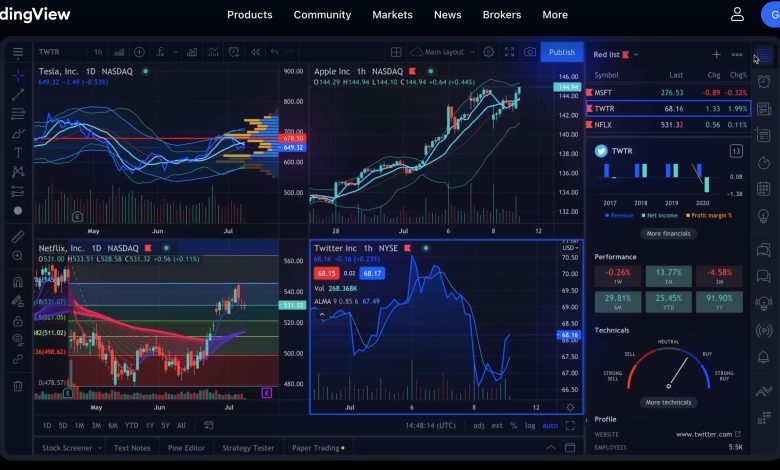In-Depth Analysis: The Latest Crypto Trends

- Understanding the impact of NFTs on the crypto market
- Exploring the rise of decentralized finance (DeFi) platforms
- Analyzing the growing popularity of stablecoins in the crypto space
- The role of institutional investors in shaping crypto trends
- Challenges and opportunities in the world of cryptocurrency mining
- Emerging trends in blockchain technology and their implications
Understanding the impact of NFTs on the crypto market
NFTs, or non-fungible tokens, have been making waves in the crypto market recently, with their unique ability to represent ownership of digital assets. These tokens have had a significant impact on the crypto market, attracting a new wave of investors and collectors looking to capitalize on the growing trend.
One of the key ways in which NFTs have influenced the crypto market is by bringing a new level of scarcity and uniqueness to digital assets. Unlike cryptocurrencies like Bitcoin or Ethereum, which are fungible and can be exchanged on a one-to-one basis, NFTs are one-of-a-kind tokens that cannot be replicated or exchanged for an equal value. This scarcity has driven up demand for NFTs, leading to a surge in prices and trading volume.
Another important aspect of NFTs is their ability to provide proof of ownership and authenticity for digital assets. This has opened up new opportunities for artists, musicians, and other creators to monetize their work by selling NFTs representing their creations. By tokenizing digital assets, creators can ensure that their work is protected from piracy and can be easily bought and sold on the blockchain.
Overall, the impact of NFTs on the crypto market has been profound, bringing a new level of innovation and excitement to the industry. As more investors and creators flock to the NFT space, we can expect to see continued growth and evolution in the market, with new use cases and applications for NFTs emerging in the coming years.
Exploring the rise of decentralized finance (DeFi) platforms
The rise of decentralized finance (DeFi) platforms has been a significant trend in the cryptocurrency space in recent years. DeFi platforms aim to provide financial services without the need for traditional intermediaries such as banks or brokers. Instead, these platforms use smart contracts on blockchain networks to facilitate transactions and automate processes.
One of the key advantages of DeFi platforms is their ability to offer users greater control over their assets and financial activities. By eliminating the need for intermediaries, users can access a wide range of financial services directly from their digital wallets. This includes lending and borrowing, trading, and earning interest on crypto assets.
Another important aspect of DeFi platforms is their focus on interoperability. Many DeFi projects are built on the Ethereum blockchain, which allows for seamless integration with other decentralized applications (dApps). This interoperability enables users to access a variety of services and products within the DeFi ecosystem.
Overall, the rise of DeFi platforms represents a shift towards a more open and inclusive financial system. By leveraging blockchain technology and smart contracts, these platforms are democratizing access to financial services and empowering users to take control of their assets. As the DeFi space continues to evolve, it will be interesting to see how these platforms innovate and expand their offerings to meet the growing demand for decentralized finance solutions.
Analyzing the growing popularity of stablecoins in the crypto space
The growing popularity of stablecoins in the crypto space is a trend that has been gaining momentum in recent years. Stablecoins are a type of cryptocurrency that is pegged to a stable asset, such as the US dollar or gold, to minimize price volatility. This makes them an attractive option for investors looking for a more stable store of value in the volatile world of cryptocurrencies.
One of the main reasons for the increasing popularity of stablecoins is their ability to facilitate quick and low-cost transactions. Because stablecoins are pegged to a stable asset, their value remains relatively constant, making them ideal for transferring funds across borders or between different cryptocurrency exchanges.
Another factor driving the adoption of stablecoins is the growing interest in decentralized finance (DeFi) applications. Many DeFi platforms use stablecoins as a means of collateral or as a form of payment, further boosting their popularity in the crypto space.
Overall, the rise of stablecoins reflects a shift towards more stable and secure forms of cryptocurrency that can provide a reliable store of value in an otherwise volatile market.
The role of institutional investors in shaping crypto trends
When it comes to shaping trends in the crypto market, institutional investors play a significant role. These investors, such as hedge funds, pension funds, and asset management firms, have the financial resources and expertise to influence the direction of the market. Their actions can have a ripple effect on prices and market sentiment, making them key players in the crypto ecosystem.
One way in which institutional investors impact crypto trends is through their investment decisions. When a large institutional investor enters the market or makes a significant investment in a particular cryptocurrency, it can signal to other investors that the asset is worth considering. This can lead to increased demand and higher prices, driving the overall trend in a positive direction.
Additionally, institutional investors often have access to research and analysis that retail investors may not have. This information can help them make more informed decisions about which cryptocurrencies to invest in, leading to more strategic and impactful investments. As a result, their actions can shape the overall direction of the market and influence which trends gain traction.
Challenges and opportunities in the world of cryptocurrency mining
The world of cryptocurrency mining presents both challenges and opportunities for those involved in this rapidly evolving industry. As the demand for cryptocurrencies continues to rise, so does the need for miners to secure and verify transactions on the blockchain network. This process requires significant computational power and energy consumption, leading to concerns about the environmental impact of mining operations.
On the other hand, cryptocurrency mining also offers lucrative opportunities for individuals and businesses looking to profit from the growing popularity of digital currencies. With the right equipment and expertise, miners can earn rewards in the form of newly minted coins or transaction fees. This has led to the emergence of mining pools and farms, where multiple miners combine their resources to increase their chances of successfully mining a block.
However, the increasing competition in the mining sector has made it more challenging for individual miners to remain profitable. As more miners join the network, the difficulty of mining new blocks increases, requiring miners to invest in more powerful hardware to stay competitive. This has led to a centralization of mining power in the hands of a few large players, raising concerns about the decentralization of the cryptocurrency network.
Emerging trends in blockchain technology and their implications
Blockchain technology is constantly evolving, and there are several emerging trends that are shaping the future of this space. These trends have significant implications for various industries and are worth keeping an eye on.
- One of the key trends in blockchain technology is the rise of decentralized finance (DeFi). DeFi platforms are disrupting traditional financial systems by offering decentralized lending, borrowing, and trading services. This trend has the potential to democratize finance and provide greater financial inclusion for individuals around the world.
- Another important trend is the integration of blockchain technology with the Internet of Things (IoT). By combining blockchain and IoT, companies can create secure and transparent systems for managing and tracking data from connected devices. This has implications for industries such as supply chain management, healthcare, and smart cities.
- Interoperability is also a key trend in blockchain technology. As more blockchain networks and platforms emerge, there is a growing need for these systems to communicate and interact with each other. Interoperability solutions are being developed to enable seamless transactions and data sharing across different blockchains.
- Privacy and security are becoming increasingly important in the blockchain space. With the rise of privacy-focused blockchains and zero-knowledge proofs, users can now transact and store data securely without compromising their sensitive information. This trend is crucial for maintaining trust and adoption of blockchain technology.
- Finally, sustainability is a growing concern in the blockchain industry. As the energy consumption of blockchain networks continues to rise, there is a push towards more environmentally friendly consensus mechanisms and practices. Sustainable blockchain solutions are being developed to reduce the carbon footprint of blockchain technology.



